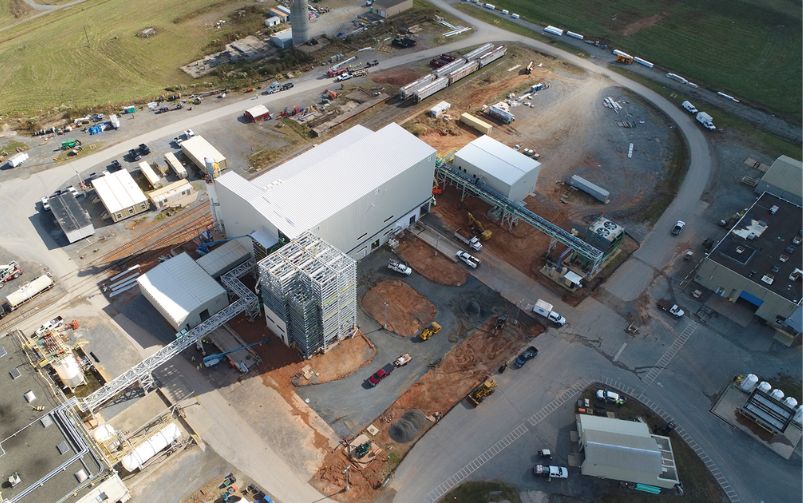Graphic via Adobe Stock.
Mining companies need to step up and lead the way in championing neuro-inclusion, according to a discussion between panelists Nermina Harambasic, Nathan Stubina and Kelly Bron Johnson during a Nov. 29 webinar hosted by the CIM Diversity and Inclusion Advisory Committee (DIAC).
The webinar discussed DIAC’s “Neurodiversity in Mining” initiative launched in 2021, which aims to boost inclusion in the mining industry and improve employment equity and opportunities for neurodivergent individuals, and is spearheaded by DIAC committee members Harambasic and Stubina.
The term neurodivergent refers to people whose brains develop or work in different ways from people with neurotypical brains, and includes those with autism spectrum disorder, attention deficit hyperactivity disorder (ADHD), dyslexia or other neurological or developmental conditions.
Lagging behind
The panelists discussed how adoption of DIAC’s Neurodiversity in Mining pilot program, which is designed to support mining companies to hire neurodivergent workers, has been slow.
DIAC’s pilot program assists companies with a step-by-step implementation process developed by Johnson, an inclusion, diversity, equity and accessibility advisor who runs the company Completely Inclusive and identifies as autistic and hard of hearing.
The process includes adjustments to job postings to ensure the language does not dissuade neurodivergent candidates, a modified interview process that takes the needs of the candidate into account, paid trial job experience to see if the role is a fit and an adapted hiring and onboarding process, which includes pairing the new employee with a mentor.
The pilot program includes support from Completely Inclusive as well as from organizations that assess neurodivergent workers.
“Why aren’t we leading this initiative in comparison to other industries?” asked Harambasic, a project management and advisory expert focused on mining and energy products, pointing out that industries such as IT, banking and food supply have been utilizing programs to hire neurodivergent workers for years.
Recruiting neurodivergent workers
Stubina, the vice-president of technology at Sherritt International, said he believes there is a general lack of awareness of neurodiversity, while Johnson added that there is a widespread misunderstanding of the abilities and capabilities of neurodivergent workers. She pointed out that they are often typecast, and that companies need to do a better job of not only considering them for different types of roles, but also actively communicating the different careers available to them in mining.
“We’re not finding the sufficient candidates that we need [for the mining industry],” she said. “It has to start all the way from education. Just for neurodivergent people to be approached, and to understand, ‘hey, did you know that you could go into geology? Or did you know that being a site manager might actually be something that you might be suited to?’ They’re not encouraged to go into those programs necessarily.”
Companies cannot wait any longer to address the labour shortage, the panelists said, as large numbers of the workforce are due to retire by the end of the decade. According to the 2021 edition of the Canadian Mining Labour Market Outlook, published by the Mining Industry Human Resources Council, the Canadian mining industry will need to hire almost 30,000 new workers from 2021-2025 to “replace retirees and fill new positions to meet baseline production targets,” as cited in a 2023 report from the Mining Association of Canada.
“The jobs need to be done,” Johnson said. “It’s a matter of attracting the right candidates and getting them as early as possible, and maybe even training them to fit the industry.”
Rethinking the hiring process
Johnson explained that traditional, pressure-based job interviews are not always the best way for a candidate to demonstrate that they possess the skills needed for the role, especially when the interviewer asks abstract questions such as: “Which fruit would you be? Are you a banana or an apple?”
She continued, “It seems almost like it’s entertainment for the people hiring, rather than giving you the actual information—can this person do the job you need them to do, and do it well?”
Johnson said that by ditching the “hugely intimidating interview process” and trying alternative interview formats, such as paying candidates to complete tangible tasks over several days, would take the pressure off from the process and give a better sense of how they work and problem solve.
Accommodation in the workplace
Stubina discussed Sherritt International’s participation in DIAC’s pilot program in 2022, which involved permanently hiring a worker for Sherritt’s technology division through Inclusion Alberta.
“It was successful and then other people were looking at duplicating it for their own divisions,” he said.
Stubina spoke to the importance of workplace accommodations for people with sensory sensitivities, which could include providing noise-cancelling headphones, or a dark, quiet room to focus in. He added that while companies may have balked at these suggestions prior to the pandemic, “the paradigm has shifted.”
In an email to CIM Magazine, Harambasic said that a few companies have expressed interest in the pilot program, but so far Sherritt is the only mining company that has gone through the hiring and employment process.
“We are still working with potentially a few others, but there is still lots of misunderstanding what neurodiversity is and how to go about it,” Harambasic said in the email. “The fact is that neurodivergent people are already working for mining companies, so [the] pilot will help every mining company achieve full human potential.”
Moving forward
The speakers concluded the webinar by inviting the mining community, and decision makers, to implement the pilot program into their organizations.
“There’s no shortage of people who say they’re interested [in the pilot program], but it kind of lags or slows down getting mining companies to start the initiative,” Stubina said. “It could be [hiring] one person as a pilot.”
“I would put that out as a challenge to mining executives to step back and say, ‘Okay, 2024 is ahead of us, what can we do differently for the mining industry?’ And let neurodiversity be one of those things that we will change—because to me it equates to innovation, it equates to expansion of inclusion,” Harambasic said.
Johnson stated the importance of making sure that all levels of the company are pushing for neuro-inclusion: “Diversity is definitely not a single siloed issue. It’s not just relegated to HR. It’s gotta be everybody approaching this together, in a community sense of, how can we make inclusion our priority?”
Interested companies should reach out to diac@cim.org for further details.




